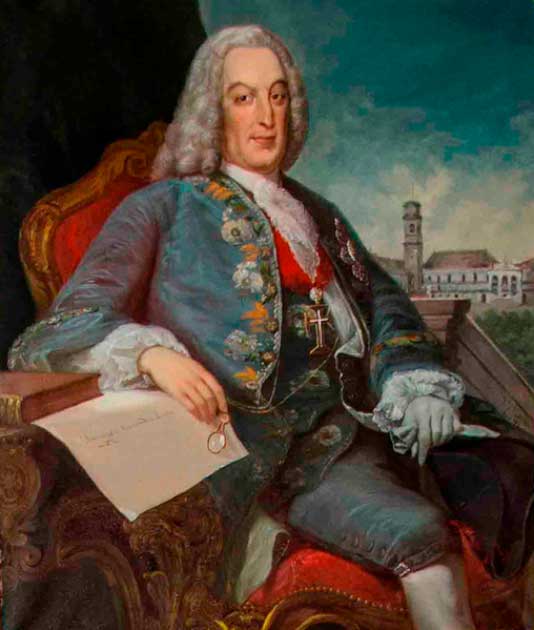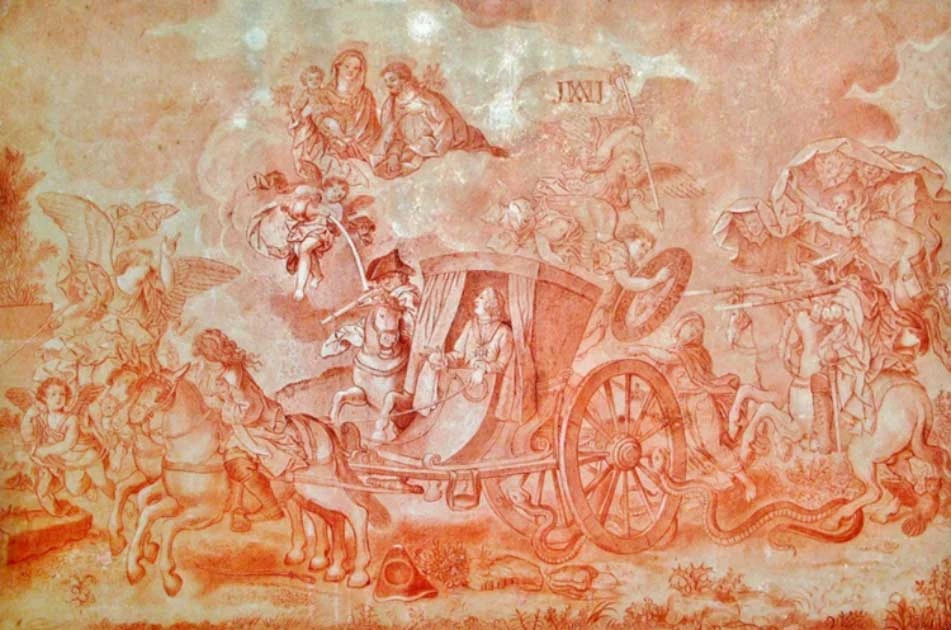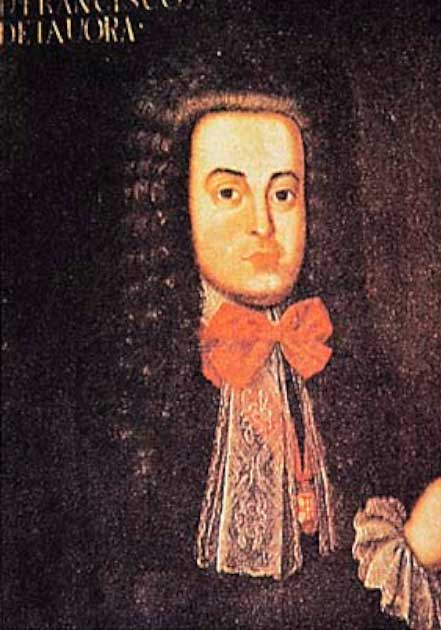The world of 18th century Portuguese society was rocked by a political scandal known as the Tavora Affair. On the 13th of January, 1759, the entire Tavora family was tormented and seven of its members were executed.
The Tavora executions are known as one of the most violent and cruelest sentences ever handed down upon the Portuguese nobility. However, the question is, what led Portuguese royals to exterminate an entire family?
Well, perhaps some of them deserved it. The previous year in 1758 there had been an attempt to assassinate King Joseph I of Portugal, and the Tavoras were firmly in the spotlight as ringleaders and conspirators.
But were the Tavora family really involved in the assassination attempt? Or was it an attempt by Sebastiao de Melo, the prime minister to King Joseph I, to limit the increasing powers of the old aristocratic families? Were the Tavora executions justified at all?
Sebastiano de Melo
Sebastiano Jose de Carvalho e Melo, the later Marquess of Pombal, is a very controversial figure in the history of Portugal for several reasons. As a young man he was the ambassador to Vienna and London under King Joao V.
There, he was exposed to the ideas of the enlightenment and gained knowledge about the advancements in science at England’s Royal Society. At that time, Portugal did not have much experience or idea of such intellectual pursuits, and de Melo’s eyes would have been opened indeed.

In 1749, Sebastiao de Melo was called to Portugal, and King Joao gave him the post of secretary of state for wars and foreign affairs. He did not have any administrative experience. However, King Jose, who succeeded King Joao, confirmed his appointment on the 13th of August, 1750.
Proving a skilled statesman and in favor with the monarchy, Sebastiano de Melo had a great influence on the government of Portugal. His power and reputation increased further after he was given the charge of reconstructing Lisbon after the severe earthquake that took place on the 1st November, 1755.
The Lisbon earthquake was devastating, destroying much of the city including the royal palace. Suddenly homeless, King Joseph I had to live in the tent complex in Ajuda on the city outskirts. This makeshift court became the center of social and political life of the Portuguese at that time.
The king was attended by his nobles and lived surrounded by all staff whom Sebastiano de Melo organized. However, all was not well at court, and Sebastiano de Melo had bitter disputes with the old nobility. The clashes between the Sebastiano de Melo and the old nobility were frequent. But they were tolerated by the king as he trusted Sebastiano de Melo owing to his competent leadership in the aftermath of the earthquake.
King Joseph I had married Mariana Victoria, in Infanta of Spain and had four daughters. However, he still had a favorite mistress named Teresa Leonor, who was the wife of Luis Bernado, the Tavora family’s heir. The Tavora family was a powerful family in the kingdom in their own right. They were also among the bitterest enemies of the prime minister.
An Attempted Assassination
Suddenly all hell broke loose on 3rd September, 1758. King Joseph I was returning to Ajuda incognito in an unmarked carriage on the unfrequented roads on Lisbon’s outskirts, after spending an evening with his favorite mistress. As he passed through the deserted streets, the carriage was attacked by two to three men.
The attackers started firing on the occupants of the carriage. The driver of the coach was badly injured, and King Joseph I himself was shot in the arm. However, both the driver and king survived the attack and escaped to the courtly tents in Ajuda.
Acting quickly, Sebastiano de Melo took control of the situation. He concealed the injuries and attack on the king but discreetly initiated an inquiry. The agents of the prime ministers started collecting evidence, and the suspicion for the attack on the king quickly fell on the Tavora family.

After two days, two men were arrested and tortured. They confessed to attacking the king and said that they were following the orders given to them by the Tavora family. According to the men, the Tavora family wanted to replace the king and put the Duke of Aveiro on the throne. On the following day, the two men were hanged.
In the following week, Marchioness Leonor of Távora and Fransisco Assis, along with their daughters, sons, and even grandchildren, were arrested. Other alleged conspirators, like the sons-in-law of the Tavora family and the Duke of Aveiro, along with their family, were also arrested.
A special court was established in order to investigate the case. The court was given special powers to use torture to get information from the alleged individuals. It came to the conclusion that the Tavora family was indeed responsible for the assassination attack on King Joseph I.
The Duke of Aveiro confessed under severe torture. However, the Tavora family denied the charges against them. But the confessions from other quarters were enough and they were also sentenced to death.
The evidence presented by the court included the confessions of the assassins, a weapon used in the attack that had been shown to belong to the Duke of Aveiro, and the fact that the Tavora family were among the few people who were aware of the king’s whereabouts when he was attacked.
According to the original order, all the members of the Tavora family, including the women and children, were sentenced to death. The Tavoras were to become extinct as a noble family.
However, due to the intervention of Maria Francisca, the heiress to the throne and Queen Mariana, Joseph’s queen, most of them were saved. The death toll was still bloody however, and seven members of the Tavora family were brutally executed for planning the assassination of King Joseph I.
Aftermath
After the Tavora executions, the daughters of the Duke of Aveiro and the Tavora family were sentenced to imprisonment for a lifetime. Sebastiano de Melo, the man of the hour who had delivered the conspirators to his king, became the Count of Oeiras. In 1770, he was again elevated and became the Marquis of Pombal.

However, whether the Tavora family was actually guilty or innocent still remains a matter of debate. The tension between the king and the aristocracy has been well documented. Some historians believe that it was an attempt made by Sebastiano de Melo in order to curb the increasing power of nobility families.
As the Tavora family was one of the most powerful families at that time, it could be a possibility that the whole attempt was a plot made by Sebastiao de Melo. However, the truth remains a mystery.
Top Image: The execution of the Tavora family. Source: AlvoMaia / CC BY-SA 4.0.
By Bipin Dimri